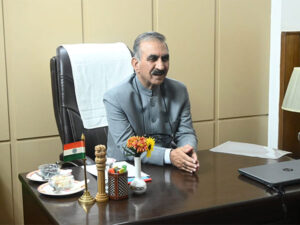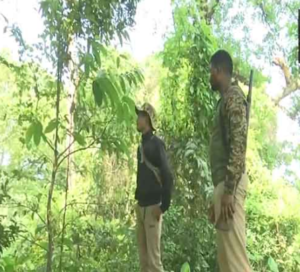Delhi pollution: CAQM Sub-Committee under GRAP holds emergency meeting
New Delhi [India], December 30 (ANI): In view of the significant deterioration in the air quality of Delhi-NCR in the last 24 hours, the Sub-Committee for invoking actions under the Graded Response Action Plan (GRAP) of the Commission for Air Quality Management (CAQM) in NCR and adjoining areas held an emergency meeting on Friday.

Delhi’s overall Air Quality Index (AQI) clocked at 399 today as per the 4 PM AQI Bulletin provided by Central Pollution Control Board (CPCB). Ministry of Environment, Forest and Climate Change in a statement said that during the meeting, the Sub-Committee comprehensively reviewed the air quality scenario in the region as well as the forecasts for meteorological conditions and the air quality index of Delhi.
“While assessing the overall air quality parameters, the Sub-Committee noted that due to extremely unfavourable meteorological conditions the overall air quality of Delhi has deteriorated over the last few hours and there is an increasing trend further in the coming days as per the Air Quality forecast of IMD/IITM.
Therefore, it is considered necessary to put Stage III of GRAP back in place with immediate effect in the entire NCR in an effort to prevent further deterioration of air quality in the region,” said a statement from the Ministry of Environment, Forest and Climate Change.
Based on earlier decisions of the Sub-Committee on GRAP, actions up to Stage-I and Stage-II of the GRAP are already in force vide orders dated October 5, 2022, and October 19, 2022, respectively, as per the statement.
Accordingly, a 9-point action plan as per Stage-III of GRAP is applicable with immediate effect from today in the entire NCR in addition to preventive/restrictive actions under Stage-I and Stage-II of the GRAP which are already in place.
The 9-point action plan includes steps to be implemented/ensured by different agencies and PCBs of NCR and DPCC.
“These steps include Intensified frequency of mechanised/vacuum-based sweeping of roads.
Daily water sprinkling along with the use of dust suppressants, before peak traffic hours, on roads and right of ways including hotspots, heavy traffic corridors and proper disposal of the collected dust in designated sites/ landfills. Intensification of public transport services. Introduce differential rates to encourage off-peak travel,” as per an official statement.
The committee enforced a strict ban on construction and demolition activities in the entire NCR, except for railway services, metro rail services including stations, hospitals, health care facilities and sanitation projects like sewage treatment plants and water supply projects etc among others.
Moreover, the Commission appeals to the citizens of NCR to cooperate in implementing GRAP and follow the steps mentioned in the Citizen Charter under GRAP.
“Citizens are advised to, choose a cleaner commute – share a ride to work or use public transport or walk or cycle. People, whose positions allow working from home, may work from home. Do not use coal and wood for heating purposes. Individual house owners may provide electric heaters (during winter) to security staff to avoid open burning. Combine errands and reduce trips. Walk to errands wherever possible,” it read.
Further, all implementing agencies are advised that actions under Stage ‘I’ and Stage ‘II’ of the GRAP are further intensified and special drives are conducted for the implementation of actions under Stage ‘III’, particularly restrictions related to Construction and amp; Demolition activities, stone crushers and mining and associated activities. Regulatory actions need to be taken on Industrial operations, brick kilns, and hot mix plants using non-approved fuels stated in the official statement.
It said that the Commission is closely watching the situation and will review the air quality scenario accordingly.






